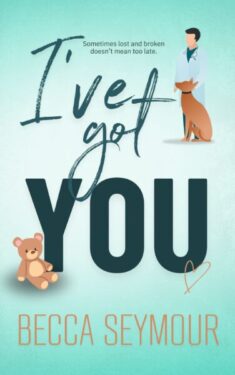by

Note: This edition of Yes is out of publication. It will soon be re-release in a new bundle, coming from Changeling Press. Watch for the new listing summer 2019.
A Vasquez & James Novella
Professional badass Luki Vasquez and textile artist Sonny James have been married for five years, and despite the sometimes volatile mix, they’re happy. From their first days together, they stood united against deadly enemies and prevailed. But now the deadly enemy they face is the cancer thriving inside Luki, consuming his lungs.
As Luki’s treatment proceeds, Sonny hovers near, determined to provide every care, control every thread of possibility just as he does when he weaves. But he can’t control the progress of the cancer or how Luki’s body reacts to the treatment regime. Sonny tries, but Luki dances with cancer alone—until he gets a startling reminder of the miracle of life. With renewed determination and mutual love, the two men emerge from their coldest winter into a new spring day.
Royalties donated to the Fred Hutchinson Cancer Research Center. (Over $500 donated to date.)
Cover Artist: Reese Dante
- 2 To Be Read lists
- 4 Read lists
Publisher: Dreamspinner Press
Cover Artists:
Genres:
Pairings: M-M
Heat Level: 3
Romantic Content: 4
Ending: Click here to reveal
Character Identities: Gay
Protagonist 1 Age: 46-65
Protagonist 2 Age: 36-45
Languages Available: English
Series Type: Continuous / Same Characters
FIVE years since I’ve smoked a cigarette, Luki marveled. He still wanted one every day when he woke up, and he ordinarily laughed at himself for it. But now, it just wasn’t funny. Six years he’d been with Sonny—his tall, dark-eyed, beautiful husband—five since the wedding, five since he smoked. He’d stopped because Sonny cared. He’d stopped because after they’d rescued themselves from a sociopathic bomber, it seemed stupid to further tempt fate. He’d stopped because after Delsyn, Sonny’s beloved nephew, died slowly from injuries to his brain, and after Luki and Sonny had themselves narrowly escaped death on a mountainside, Sonny needed to know Luki would be there.
“Stop smoking those fucking things,” Sonny had said. “I love you.” Over and over he said it until Luki could no longer pretend not to understand. So much had happened. Sonny had lost so much. He wanted Luki to be his sure thing.
Luki had stopped smoking, but maybe he hadn�
�t stopped soon enough.
Mom, he thought. The word conjured her image, or perhaps it was the other way around, but there she was, smiling before him—at him—with her wide Hawaiian smile and her jet-black hair falling down over her shoulders in smooth waves. He buried himself, in memory, in the comfort of her great, round bosom. Felt the strength of her arms, the sway as she rocked him and sang a song of Lanai, her much missed island home.
But then he heard her cough. Felt her wracked body as she tried to hold him when it was all she could do to breathe. Felt her soft, sagging flesh, her bony arms jutting against him. For all that those arms had lost their comfort, he’d hoped as a child they would hold him anyway. Forever. But despite all his wishing and hoping and even praying as she had taught him, she had died when he was seven years old. It happened in the night, suddenly. No one expected it—cancer didn’t kill like that, surely. Everybody thought they would have a chance to say good-bye. Luki had tried but no one would let him. Then it was too late. He heard her ragged cough in the night, then stood at her grave. Nothing, no time in between.
Luki felt the memory so keenly that a sound like a sob started in his chest, but it became a cough not unlike hers. He coughed so hard he thought his gut would split. He grabbed a tissue from the bedside table and held it against his lips. Trying to breathe, he half raised himself from his pillow, moving from shadow to light in the process. Morning had come. This was the day he’d promised himself he’d be honest. He’d never been particularly good at facing hard truths, and this was no different. But now he felt Sonny rise up next to him, felt his lover’s arms encircle him and pull him back against his chest, protecting. A role reversal, but fitting somehow. Luki could feel his own mass dwindling, notice Sonny’s arms circle just a little farther around his chest, see the jutting bones in his own tired hands.
The coughing passed and he lay back down, Sonny still holding him. He faced away, trying to hide the blood streaking the tissue he held crumpled in his hand. He avoided looking at it too. Preferring to look out the long, low window that faced the fir-and-cedar forest behind their home. Preferring to have Sonny at his back. He couldn’t say the words if he had to look Sonny in the eye. “I think I’m sick, Sonny.”
“Yes.”
“I mean really sick.”
“Yes.”
“I love you, Sonny.”
“Will you see a doctor?”
“Yes.”
“I’ll set it up,” Sonny said, and pushed up on an arm, preparing to rise.
“No, wait.” Luki rolled to his back and met Sonny’s eyes, dark eyes that always seemed to have lights deeper in. “Make love to me, first?”
Sonny would never refuse such a request. Once they’d come to understand the kind of love they shared, there’d never been a time, even in their darkest or most contentious moments when both hadn’t been willing to hold one another. Making love, for them, was most often tender, but even when rough, it was never part of a fight. So it came as no surprise when Sonny smiled ever so slightly and said yes with his eyes.
Nor was it a surprise when Sonny ever so carefully kissed Luki’s dried, split lips. When he lay over him rocking their bodies together, flesh to flesh, hard sliding against hard. When he prompted Luki to roll and placed pillows beneath him so he wouldn’t have to work. When he used his long, slender fingers to spread spice-scented lube and coaxed Luki open to his touch. And when Sonny pushed his erection slow and strong and slid down into Luki with a long sigh and a shiver, it held no surprise at all.
Six years, they’d been making love, and they’d grown comfortable but not predictable. They’d learned to read each other’s bodies, so their sex was always a shared adventure. Never routine, but with a practiced cohesion that brought them to orgasm in sweet syncopation, almost synchronicity, but letting each man savor the other’s climax. So for Luki it came as no surprise when, as he came in cresting waves, Sonny moaned his name long and low and held him tight against his body. Just as Luki’s orgasm began to ebb, Sonny drove into him hard and fast until his rhythm broke into spasms. “Oh, God, Luki,” he said, and fell gently down over him like a blanket and ended with a giggle—yes, a giggle—and a kiss.
LUKI tried to make it look as though he met the doctor’s eyes, but really, he looked out the fifth floor window to the Seattle city traffic. Downtown, lots of people in the street, though not as many as say, New York, or London, both places Luki had been. The opulence of the oncologist’s office held no power to impress Luki. He had means, and, before he loved Sonny, this was the kind of place he chose to live and work. Because it was cold, sterile, empty of connotations and implications.
He looked—surreptitiously, he hoped—from the window to Sonny, marveling at the way he looked beautiful in a new way in every setting. As if he wove himself into a scene the same way he wove shining ideas into his tapestries. Would he, Luki, be here listening to the doctor drone if it wasn’t for Sonny? Probably. But it would mean less.
He registered the doctor’s voice: “Now, I’m not going to mince words….”
That sounded ominous.
“That would be dishonest, and unfair to you.”
“Yes,” Luki answered, because it seemed something was called for. The doctor, who was not, Luki thought, cold or empty, continued to drone. That was the only word Luki could think of for it. Blah, blah, blah. He’d already seen two doctors, had a bevy of pictures taken of his interior—like real estate—and endured poking and prodding that would stir the dead. But he inwardly admitted his reaction—or lack of reaction—to the doctor’s words might be less because of the doctor’s boring manner and more because he, Luki, didn’t want to hear a detailed description of the tumor in his lung.
Distracted, he gazed at the axial CT images, which was a view from the top down, and made his lung look like an almost egg-shaped hole, and the tumor look like a yoke splatted in the middle of it. Mr. Vasquez, I’m afraid you have a fried egg in your lung. Luki didn’t realize he’d chuckled aloud until Sonny clamped a hand on his shoulder, and he saw a shocked look on the doctor’s face. “Sorry,” he mumbled. “I was thinking about… something….”
“I’m not sure how much you heard of my explanation, Mr. Vasquez.”
“Just call me Luki, please. I heard it all, I think. Apical tumor, right side, squamous cell, advanced, etcetera.” The doctor and Sonny both looked shocked, and Luki felt shocked too. He hadn’t realized that despite his efforts not to, he really had laid claim to the doctor’s words.
“Yes, well,” Dr. Zhvornak continued, “good, so now this is the important part, Luki.” He slid his stool closer. “There are both positive signs, in terms of what’s in store for you, and negative ones. Negative first: The location in the apex of the lung—”
Another shock, this one physical, coursed through Luki when the doctor tapped his chest to show him where the tumor was growing, rather than pointing to the images. If he was trying to secure all of Luki’s attention, it worked.
“—tends to suggest a less favorable prognosis. And the tumor is advanced, adhering slightly, from what we can see, to the chest wall, here. Understand so far?”
“Yes.”
“Some signs that are more positive: Despite the location of your tumor, you have no signs of Pancoast syndrome—which shows up when a nerve is sheathed in tumor. Though the tumor is large and adherent to the chest wall, I don’t believe it truly invades the tissue there significantly. And, believe it or not, it is favorable to you that this tumor is in your right lung, not your left. Very favorable, we found no evidence for metastases. Do you know what that word means?”
“Yes.”
“We can fight this aggressively if you want. It will most likely involve chemo, radiation, surgery, chemo, and radiation again. Then, either immediately or six months later depending on the signs, another round of chemotherapy. That last round is insurance if we’ve been successful. If we’ve not met with success, if the cancer is still active, then that last round will most likely be palliative. That means—”
“We know what it means!”
“Let him say it, Sonny.”
“Palliative means it’s offered to reduce pain and discomfort in the dying process, and it may possibly lengthen your life by months or maybe a year. I’ve outlined for you the most aggressive treatment, Mr. Vasquez—”
“Luki.”
“Luki, then. I have twenty years of experience treating cancers, and I can tell you yours is far from the least favorable scenario. This treatment regimen is my recommendation—leaving no medical stone unturned, so to speak. You will find the process painful, debilitating, and long. You may never recover your full strength. You will certainly lose part of your lung. You’ll have a new scar. During the process you’ll almost certainly lose your hair.”
Luki had no difficulty maintaining his cool exterior until those last three words. Lose. Your. Hair. His heart began to pound at the thought of grieving his carefully tended chestnut curls, which he considered a mitigating factor, making up in part for his frightening visage with its long, livid scar. When he tried to swallow, he coughed. Thankfully, it passed without becoming a spell. Sonny sat behind him and to one side, and now he lifted a hand to those curls as if to protect them.
“Statistics mean little in cancer treatment, Luki, but I like to be completely frank. Considering all the information we’ve gathered, the odds are one in three that you’ll survive for the next five years, if we fight with every weapon we have. Do you want to proceed?”
“Yes!” The word fairly burst from Sonny’s lips.
“Mr. James—”
“Call me Sonny.”
“I appreciate, Sonny, that you are invested in Luki’s welfare. Obviously, the two of you care deeply for each other. That commitment—if you two can make it last through the hell and high water you’ll face during treatment—is in fact another strong point in Luki’s favor. But Sonny, it has to be his choice. You can’t make it for him.”
Luki stood up. “Let’s go, Sonny. Dr. Zhvornak—”
“Dr. Z, please. We’ll get to know each other well, if you opt for treatment, and besides”—he smiled—“everyone massacres my last name.”
Luki laughed—which a few years ago would have been a miracle in itself—but Sonny looked horrified. “Luki, what do you mean, let’s go? We can’t just go. You have to—”
Luki gave Sonny a long, not too friendly stare, then looked over his shoulder at the doctor. “I’ll be in touch. It won’t be long. Thanks for your honesty.” Luki turned to walk out, but Sonny continued to stand in place, his dark skin visibly blanched. Luki raised his brows. “Sonny?” It was more an order than a question.
Sonny followed, but his stiff footfalls proclaimed his shock and anger.
THEY had driven to Seattle from the Olympic Peninsula that morning before the birds were awake—or so Luki had complained. Even after years of Sonny’s influence, he hadn’t become a morning person, had no desire to do so, knew he never would. They had taken Luki’s ice-blue Mercedes, aged by now, but still in good shape, because it helped Luki maintain the chilly facade that used to be his trademark when he was a full-time working detective. Now he only detected occasionally and ran his security business mostly in absentia. Usually he could still call up the chill factor when needed, but this morning it had been elusive at best.
They stood in the bow of the ferry while they crossed the Puget Sound, then drove south over the familiar stretch from Edmonds and arrived at the Cancer Center in Seattle twenty-five minutes before Luki’s appointment time. It took twenty of those minutes for Sonny to convince Luki to go in—mostly using a technique Luki had come to think of as meaningful silence. Sonny was very good at it.
Now, in the car again after leaving the doctor’s office in discord… utter discord, Luki felt the significance of Sonny’s silence aimed at him like a drawn and loaded bow. It felt ugly, but he couldn’t give Sonny what he wanted. Not yet. In an effort to ignore the facts, he asked, “Are you hungry, Sonny?”
“No, I’m not hungry! I’m flabbergasted that you didn’t answer that doctor. I’m too upset to be thinking about food.”
“Well, Sonny, I’m fucking hungry!” It felt kind of good to lash out, but that wasn’t enough to quell his own fear, his own anger, or his guilt for not acknowledging that Sonny felt those things too. He looked around, taking in the lay of the land to figure out where they were in relation to the places in Seattle he knew. “Let’s go to the Metro. It’s right around the corner.”
A mostly gay club, The Metro served classy beer and good food—ordinary things like hamburgers and steaks, but of quality that justified the upscale prices. Still early in the day, the dim interior was sparsely populated, which was part of the appeal for Luki at that moment. Luki was recognized as soon as he walked in. As did everyone but a select few in his life, the staff at the Metro referred to him by his last name.
“Mr. Vasquez,” the bearded man at the door said. “We haven’t seen you for a while.”
He didn’t say a word to Sonny. This happened regularly, at the Metro, and though it didn’t bother Sonny at all, it ruffled Luki’s feathers. Seriously. Every time in the last six years that he’d been to the Metro, Sonny had been with him. They knew his name, knew he and Luki were married, that they lived together, loved together. And anyone with their eyelids halfway past their pupils could see that Luki and Sonny needed each other like clouds need sun—to exist. He supposed Sonny was probably right when he said it was because he blended, purposely, into the background, but Luki didn’t care about that. Although he’d never been the kind of person to use his martial skills if not necessary for survival, his or someone else’s, at that moment in the Metro’s entryway, it was only to spare Sonny from mortification that he resisted the temptation to split the cheeky man’s lip.
All that aside, the Metro was as good a place as any, and if by some miracle he and Sonny stopped their mostly silent fight and wanted to touch, no one would get ugly about it.
They ordered burgers and fries—or rather Luki did, because Sonny sat in silence… meaningful silence, except for slamming down his silverware and glaring loudly. That should have at least got him noticed by the waiter, a man young enough for Luki to think of him as a boy and swishy enough for Luki to think Sonny was watching his ass. Which was completely stupid, but it gave Luki another reason to seethe.
Their food came, and brown bottles of Full Sail Amber Ale, which Luki had ordered, when Sonny refused to speak, because it was Sonny’s favorite. But Sonny didn’t eat or drink, and after two bites of burger and the foam off the top of the ale, Luki couldn’t either. His stomach felt like there was a hot stone in it, growing with Sonny’s every movement and look.
Suddenly—or so it seemed—he could take no more. “Fuck, Sonny! Fuck!” His outburst turned every eye in the place toward him. Except Sonny’s. Defeated, but only a little quieter, he said, “Stop, please. Of course I’m going to do the fucking treatment. I just wanted an hour, just a little time to pretend it wasn’t happening. Why couldn’t you let me have that?”
Sonny blushed the color of fresh-dug beets and stormed back toward the restrooms. Really stormed… righteously stormed. Like he’s pulling thunder and lightning along behind him. Luki’s humor always bubbled up at the most inappropriate times, and this was no different. He struggled not to laugh. Or not to cry. He wasn’t sure which, but he refused to do either because all eyes remained tuned to him, like they didn’t even notice Sonny, who was six-two and beautiful and right in front of their faces. Luki wanted to throw his beer glass at them, but instead he tried to drink. He couldn’t. He coughed. He couldn’t stop.
People rushed him, wanting to help or wanting to get in on the action. He tried to swing at them, and he was eminently qualified to kick every ass in the place at one time. But he couldn’t even blindly bat them away. With Sonny’s long legs, he made it back across the room in maybe five strides, and then he did the batting away for Luki—not at all gently. “Luki. Here, honey.” He dug a bottle out of his coat pocket, the cough medicine Luki’s doctor had given him at that first appointment, that day—not even a week ago?—when Luki admitted he was sick. Sonny had been thinking ahead, preparing for Luki’s needs, while Luki himself hadn’t given it a thought. Now, he sat down next to Luki and gathered him in close to his body. Distantly, Luki felt grateful for the comfort and the protection from selfish eyes. Not so distantly, he felt fiercely enraged with all of them—with Sonny, too, but mostly with his own diseased, dangerous, treasonous lung.
Possibly, Luki couldn’t have made his body unclench enough to sit up straight if he had wanted to. Possibly, he couldn’t have controlled the cough enough to swallow if he had tried. But he made no effort at all to cooperate. Sonny tipped him back forcibly, wedged him into place with his long legs, and trickled the syrup into his mouth a little at a time. After long seconds or a few minutes, Sonny’s ministrations took effect, and when Sonny shoved their food and silverware out of the way, Luki laid his head down on his arm to recover.
“I hate you,” he said, choking a little. “I love you. Thank you.” Thank God, Sonny understood and smiled softly, running his hand through Luki’s curls. Luki lifted his head and let Sonny draw him into an embrace. “I just wanted a minute to pretend, sweetie. Just a minute with you when I could still be strong and… (he chuckled)… manly. Worked out well, huh?”
Sonny had the grace to say “I’m sorry” instead of “I told you so.”
“No,” Luki said. But then he added, “But you could stop smashing my nose into your shirt.”
“But I like to smash your nose, Luki, and you should know by now you’ll always be manly to me.” Amazingly—and blessedly, Luki thought—they both laughed, low and intimate. “Seriously,” Sonny said. “Forgive me.”
“I’ve already forgiven you for everything you’ve ever done or ever will do,” Luki said, then broke into coughing again; thankfully it lasted only a few seconds. “But Sonny,” he added, “you don’t need forgiving today.”
Only a little shaky, Luki got to his feet and slapped some money on the table. They started to leave, every eye in the place still trained on them. Sonny turned purplish-red again. Luki stared them down—triumphantly able to pull out his old stone-cold glare this time, spoiled only slightly by a single cough and the blood on his shirtsleeve. He successfully downed his beer, took Sonny’s hand, and headed for the door. But, up to his old behaviors once again, he turned back, stepped to the table and drank Sonny’s beer too. As an afterthought, he wrapped the rest of his hamburger in a napkin, Sonny’s in another, and finally let Sonny pull him out the door, back to the car, and all the way back to the Cancer Center.
Lisa on The Novel Approach wrote:Rounding up to five because really, any nits were so not vital to the story. I adore Luki and Sonny, so when I first saw the subject matter of this book, I yelled at Lou. All right, more squeaked in dismay, but Lou, in her kind, gentle way, said that while she wouldn't give things away, she could promise that it would be okay.
It better be, I muttered to myself, after Delsyn and all that anguish in the last book...grumble, grumble, grumble...
But without giving things away...yes. Everything's going to be okay, gentle readers. Yes, I cried. Yes, my heart broke for them and with them and around them, but this book isn't about dying. True to the title, it's about affirmation - the affirmation of will, of love, of choosing life while you can.
There are no bad guys here, no guns, no car chases or harrowing fight scenes. It's a simple story with a simple plot, but told with such sympathy and understanding that it's no less engaging than Luki and Sonny's other stories. The only antagonist here is the cancer, the struggles all internal. I would have liked to have more Sonny, perhaps, but i understand. While Sonny is his rock and his support, this really is Luki's fight.
Lou's spare, simply poetic prose is perfect for the subject matter, never over-explaining, never over-indulging in long passages of angst and self-recrimination. Things are. This is how and what they are. She sets them before us just so, through Luki's eyes and his odd, often detached way of dealing with the world.
"...he gazed at the axial CT images, which was a view from the top down, and made his lung look like an almost egg-shaped hole, and the tumor look like a yolk splatted in the middle of it. Mr. Vasquez, I'm afraid you have a fried egg in your lung."
Yes, I had to work myself up to read this, but I'm so glad I did. Strength isn't always in the physical and courage is sometimes found in something as simple as saying yes.
Nadine on (Goodreads) wrote:“Where there is great love, there are also miracles.” – Willa Sibert Cather
Loving Luki Vasquez has always been pretty easy for me. For that matter, loving Sonny Bly James has been a non-effort too, because of their strength, because of the way they’ve fought courageously to get where they are, because now, six years later, they need that strength and courage more than ever before when the threat to Luki’s life comes from something other than a bomb or the barrel of a gun.
This time it’s cancer that’s out to get him, and it’s coming at Luki with a vengeance, showing no mercy, giving no quarter, and taking its toll on everything and everyone Luki cherishes.
Yes is a heart-wrenching and sometimes very difficult story to read, especially if cancer has threatened or stolen someone you love. Lou Sylvre has woven a beautiful and effective story that illustrates perfectly how overwhelming and unrelenting this disease is not only in the way it attacks its victims but also in the way it does its best to destroy the lives and relationships of everyone involved.
This is a story of loving and fearing and dying and living. It’s a story of hope in the face of hopelessness, faith tested by helplessness, endurance diminished by the cruel nature of illness, courage that doesn’t mean being unafraid but means looking at the nightmare head on and living in spite of that fear. This is a story in which love is tested by the desire to let go and to give in to a disease that kills indiscriminately but, in the end, drawing upon the strength of that love and knowing the fight to live is worth the cost of waging that war.
I already wrote this: I'm totally in love with Lou Sylvre's writing. And I'm in love with Sony James and Luki Vasquez.
I don't know how she does it but It's like I'm just sitting and walking with them all along the story. Their love is so deep. It's so beautiful and romantic, and different. I could read a thousand pages and never get tired or bored.
"Yes" really felt like some kind of magical incantation, I couldn't do anything but turn the pages, utterly bewitched.
You need to add Lou Sylvre's books to your bookshelf. NOW.
This edition of Yes is out of publication. It will soon be re-release in a new bundle, coming from Changeling Press. Watch for the new listing summer 2019.
This edition of the novella was available separately in ebook formats, and it is included in the print or ebook with the final novel in the series, Because of Jade.






